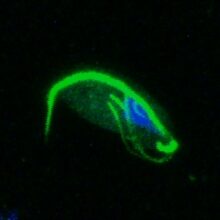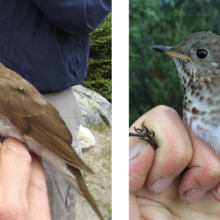We are delighted to announce Parasitology's joint prize winners for the 2024 Early Career Researcher Award (for papers published in the journal in 2023). Only researchers who are no more than 7 years post award of their PhD were eligible to receive the award. Decisions on the winning papers were made by Russell Stothard and his team of supporting Editors. The winning papers are freely available.
Parasitology's Early Career Research Award 2024 Winners:
Nicholas P. Bailey has been awarded the Early Career Researcher Prize for submitting the paper entitled:
Naima C. Starkloff has been awarded the Early Career Researcher Prize for submitting the paper entitled:
Coinfection rates of avian blood parasites increase with latitude in parapatric host species
ECR Winner's Blogs

-
Rag-and-bone science: interesting results from recycled data
- 24 July 2024,
- I was surprised and thrilled to learn that I was a joint winner of Parasitology Journal’s Early Career Research Award 2024 for my paper “Revisiting fecal metatranscriptomics...

-
Birds harbor more infections at higher latitudes
- 24 May 2024,
- A host organism typically harbors more than one parasitic species in or on its body, a phenomenon known as a coinfection. This can lead to worse symptoms, if...
